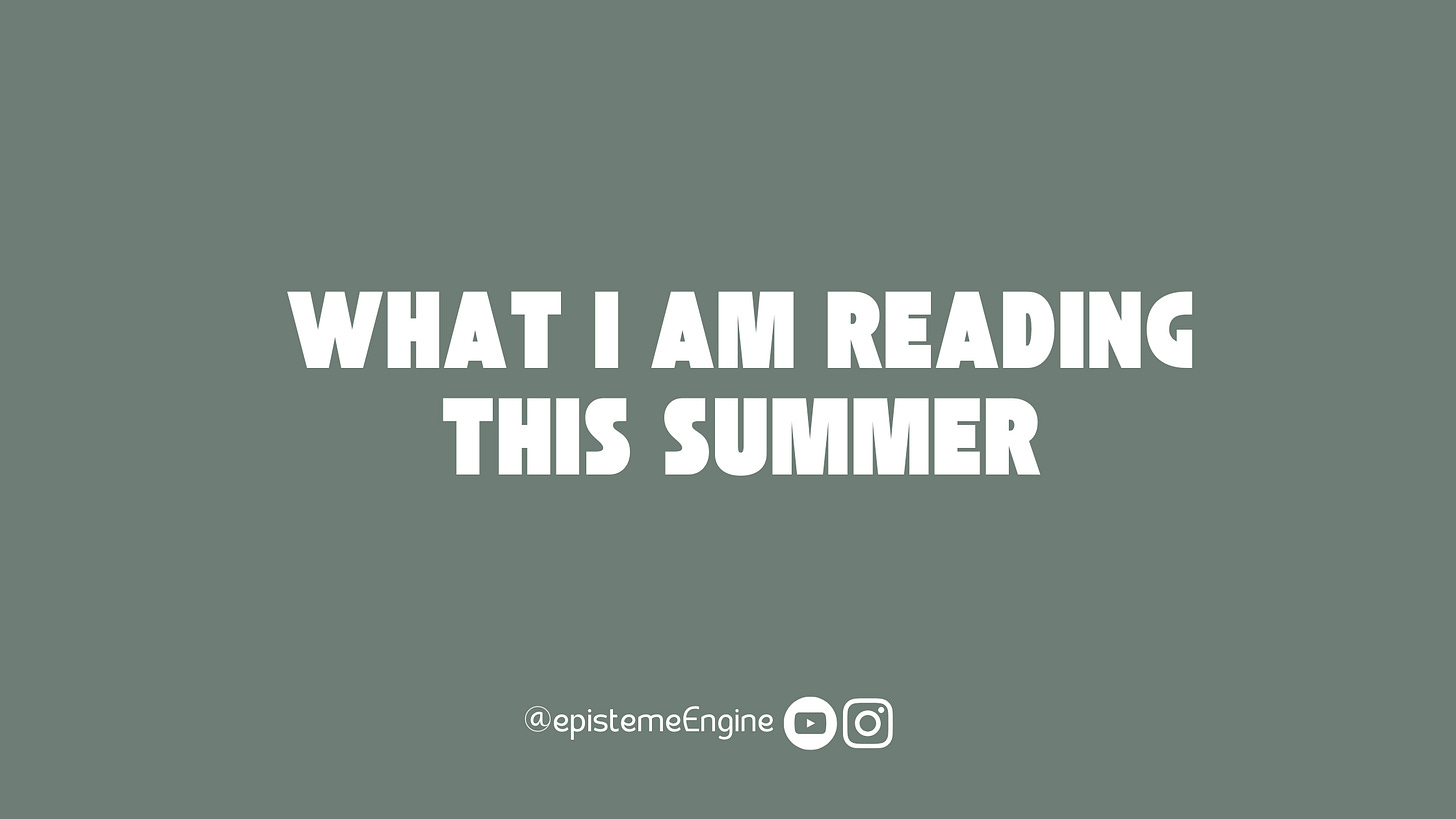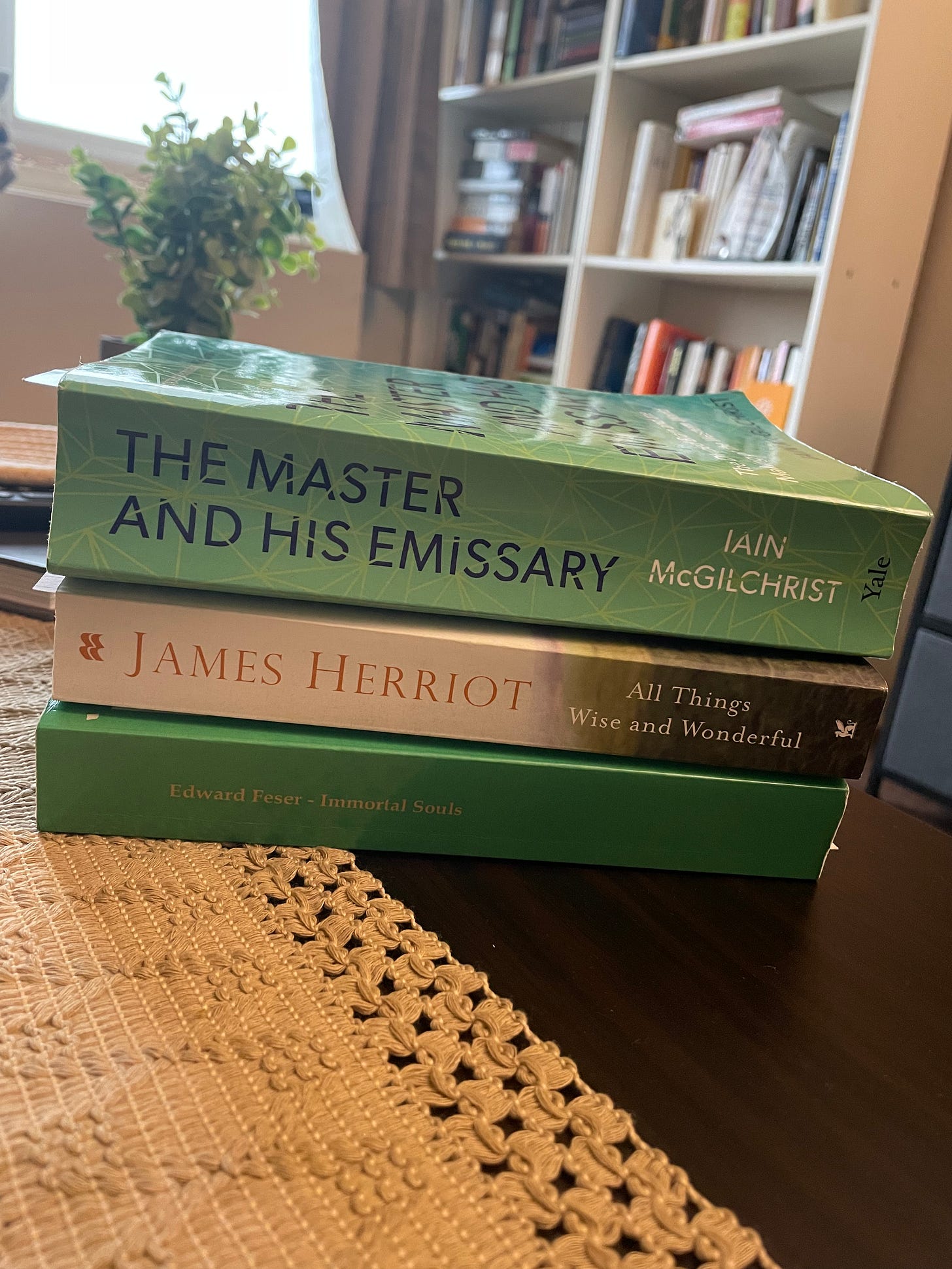Immortal Souls by Ed Feser
I recently read AI 2027, an impressively detailed, heavily foot-noted, month-to-month AI scenario projection (You can read my review here), and I left with more questions than when I started. Long story short, while reading the scenario, I couldn't help myself but to do all these pondering in the background (e.g., how does the projected AI agency differ from human agency; what is really agency; what does it mean for a substance or a thing to reason? etc.)
Then I became smart enough to quickly realize my knowledge of philosophy of mind & metaphysics of human nature is indeed poor. You see, I have had Immortal Souls (by the brilliant Aristotelian-Thomistic philosopher, Ed Feser) on my to-read spreadsheet since it was released last year; and this was just a perfect excuse to read it. All it took was reading the aforementioned scenario, $35 and a couple days wait period for delivery.
It turned out to be a very detailed book, far more detailed than I have envisaged, but unsurprising given the subject matter. I don’t have a philosophy background, but my guess is that the book could be a legit textbook for higher level undergrad (or graduate level) class on the metaphysics of human nature – it’s that detailed and long, standing over 500 pages.
So, I have decided to focus solely on the chapters on the philosophy of mind (What is Mind?), and relevant chapters on machine learning/computers. I will most likely be writing about the subject matter either on this blog, or my AI blog.
The Master and His Emissary by Iain McGilchrist
One book that has been taking me forever to read, partly because it’s a door stopper, partly because I can’t help myself from being distracted with other less dense books, is the masterly work by Iain McGilchrist, The Mater and His Emissary. In brief, the book explores how the brain’s two hemispheres (left and right) differ in how they perceive and relate to the world, and argues that Western culture has become dangerously dominated by the narrow, analytic worldview of the left hemisphere, neglecting the more holistic, contextual understanding of the right.
I have added it to my list of books I am reading this summer hoping to knock out more than a few pages and at least complete the first part of the book.
So far, one of my favorite bits in the book: “The kind of attention we bring to bear on the world changes the nature of the world we attend to, the very nature of the world in which those 'functions' would be carried out, and in which those things' would exist.”
All Things Wise and Wonderful by James Herriot
Admittedly, the two books above are quite dense, and sometimes after a protracted run you get bored from reading them, so I thought I would add something light that will allow me to continue reading, hence All Things Wise and Wonderful, the third installment in the All Creatures Great and Small Series.
My introduction to the book series came in the form of this nice PBS series about the book, which I highly recommend. After watching a few episodes, I immediately ordered the entire book series. I have read Book 1: All Creatures Great and Small, and Book 2: All Things Bright and Beautiful. Leaving me with Book 3.
And what is it about the book? It’s a memoir-style book that recounts the humorous, heartwarming, and often poignant experiences of a country veterinarian in rural England, capturing the richness of life through stories of animals, farmers, and the countryside during and after World War II.
Papers
some papers I plan to read in-depth.
The AI Scientist-v2: Workshop-Level Automated Scientific Discovery via Agentic Tree Search [Link] [Code]
Code Scientist: End-to-End Semi-automated Scientific Discovery with Code-based Experimentation [Link] [Blog]
Towards an AI co-scientist [Link] [Hugging Face]
And at least a few papers on LLM interpretability.



